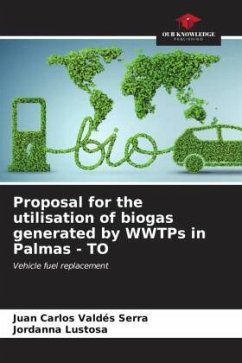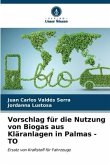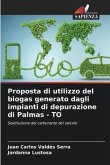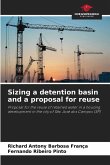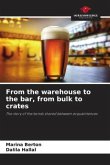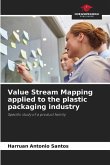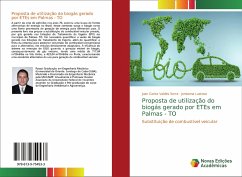Following the oil crisis in the 1970s, there was a search for alternative energy sources in Brazil. In this context, biogas has emerged as a promising source of energy for various uses. The aim of this book is to propose replacing private vehicle fuel with gas generated at sewage treatment plants in the municipality of Palmas, TO. It was necessary to quantify the flow of biogas generated at the Sewage Treatment Plants, in addition to quantifying the company's fleet for subsequent conversion from conventional to alternative fuel, in suitably adapted vehicles. The system's efficiency in removing COD ensured the stable generation of biogas and, consequently, methane gas, with an average of 717.84 m³CH4/day at Vila União and 423.04 m³CH4/day at Prata, characterising an excellent alternative for use as a vehicle fuel.

